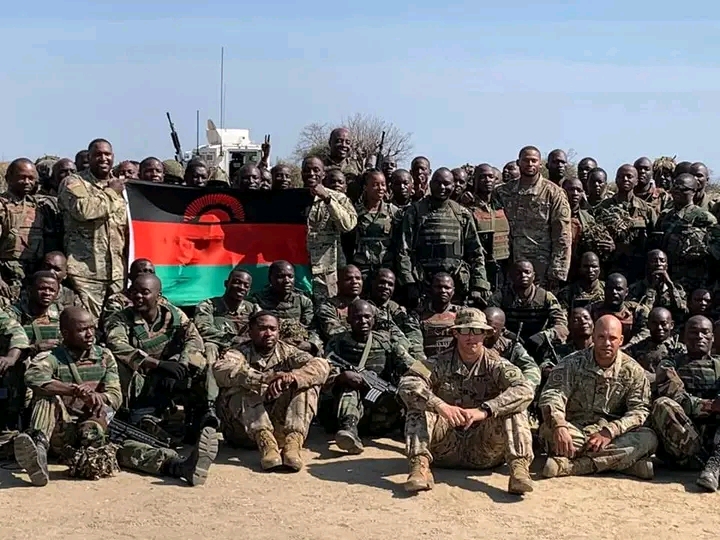By Twink Jones Gadama
The recent tragic deaths of three Malawian soldiers in the Democratic Republic of the Congo (DRC) at the hands of M23 rebels have ignited a wave of emotions and calls for the withdrawal of Malawian troops from the conflict-ridden nation. Many Malawians, both at home and in the diaspora, express sentiments that resonate with the pain of losing lives in a war perceived as foreign to Malawi. However, it is crucial to analyze the broader implications of such a withdrawal, not only for Malawi’s national interests but also for regional stability and international obligations. The decision to maintain a military presence in the DRC is not merely a matter of national pride; it is a strategic necessity that aligns with Malawi’s long-term security, diplomatic relations, and humanitarian commitments.
First and foremost, Malawi’s involvement in the DRC is rooted in its commitment to regional stability. The DRC is a country rich in natural resources but plagued by decades of conflict, political instability, and humanitarian crises. The presence of various armed groups, including the M23 rebels, poses a significant threat not only to the DRC but also to its neighboring countries, including Malawi. By participating in peacekeeping missions under the auspices of the United Nations and the African Union, Malawi plays a vital role in stabilizing the region. A withdrawal of Malawian troops could create a power vacuum that may embolden rebel groups, leading to increased violence and instability that could spill over into Malawi and other neighboring nations.
Moreover, Malawi’s military presence in the DRC is part of a broader international effort to combat the proliferation of armed conflict in Africa. The DRC has been a focal point for international peacekeeping efforts, and Malawi’s participation demonstrates its commitment to collective security. By withdrawing its troops, Malawi risks undermining the credibility of international peacekeeping missions and sending a message that it is unwilling to contribute to global efforts aimed at maintaining peace and security. This could have long-term repercussions for Malawi’s standing in the international community and its ability to forge strategic alliances.
Additionally, the economic implications of a withdrawal must be considered. Malawi is one of the poorest countries in the world, and its economy is heavily reliant on foreign aid and investment. By maintaining a military presence in the DRC, Malawi not only contributes to regional stability but also positions itself as a key player in the geopolitical landscape of Central Africa. This involvement can lead to increased foreign investment and aid, as countries and organizations are more likely to support nations that demonstrate a commitment to peace and stability. Conversely, a withdrawal could signal to potential investors that Malawi is retreating from its responsibilities, thereby jeopardizing future economic opportunities.
Furthermore, the sacrifices made by Malawian soldiers should not be viewed solely through the lens of loss but rather as a testament to the nation’s commitment to peace and security. The soldiers who serve in the DRC are not merely fighting for a foreign cause; they are part of a larger mission to protect vulnerable populations and uphold human rights. The DRC has faced numerous humanitarian crises, including widespread violence against civilians, sexual violence, and the displacement of millions. By remaining engaged in the DRC, Malawi is contributing to efforts aimed at alleviating human suffering and promoting stability in a region that has long been marred by conflict.
It is also essential to recognize the role of the Malawian military in fostering diplomatic relations with other nations. Military cooperation often serves as a foundation for broader diplomatic engagement. By participating in peacekeeping missions, Malawi strengthens its ties with other countries involved in similar efforts, fostering goodwill and collaboration on various fronts, including trade, security, and development. A withdrawal could jeopardize these relationships, isolating Malawi from important regional and international partners.
Moreover, the argument that the war in the DRC does not belong to Malawi overlooks the interconnectedness of global conflicts. In an era of globalization, conflicts in one region can have far-reaching consequences for others. The instability in the DRC has implications for trade routes, refugee flows, and security dynamics across the region. By maintaining a military presence, Malawi is not only addressing immediate threats but also contributing to a more stable and secure environment that benefits all nations in the region.
The emotional toll of losing soldiers in a foreign conflict is undoubtedly profound, and it is essential for the Malawian government to address the concerns of its citizens. However, this should not lead to hasty decisions that could have long-term negative consequences. Instead, the government should engage in open dialogue with the public, providing transparency about the mission’s objectives, the challenges faced, and the importance of continued involvement in the DRC. By fostering a sense of shared responsibility and understanding, the government can help mitigate the emotional impact of these losses while reinforcing the strategic rationale for maintaining troops in the DRC.
In conclusion, the call for Malawi to withdraw its soldiers from the DRC in the wake of recent tragedies is understandable but ultimately shortsighted. The implications of such a withdrawal extend far beyond the immediate emotional responses to loss. Malawi’s continued military presence in the DRC is essential for regional stability, international credibility, economic opportunities, and humanitarian efforts. The sacrifices made by Malawian soldiers should be honored not by retreating from their mission but by recognizing the vital role they play in promoting peace and security in a region that desperately needs it. As Malawi navigates the complexities of its involvement in the DRC, it must remain steadfast in its commitment to collective security, regional stability, and the protection of vulnerable populations. The path forward may be fraught with challenges, but it is a path that Malawi must continue to tread for the sake of its own future and the future of the region.




